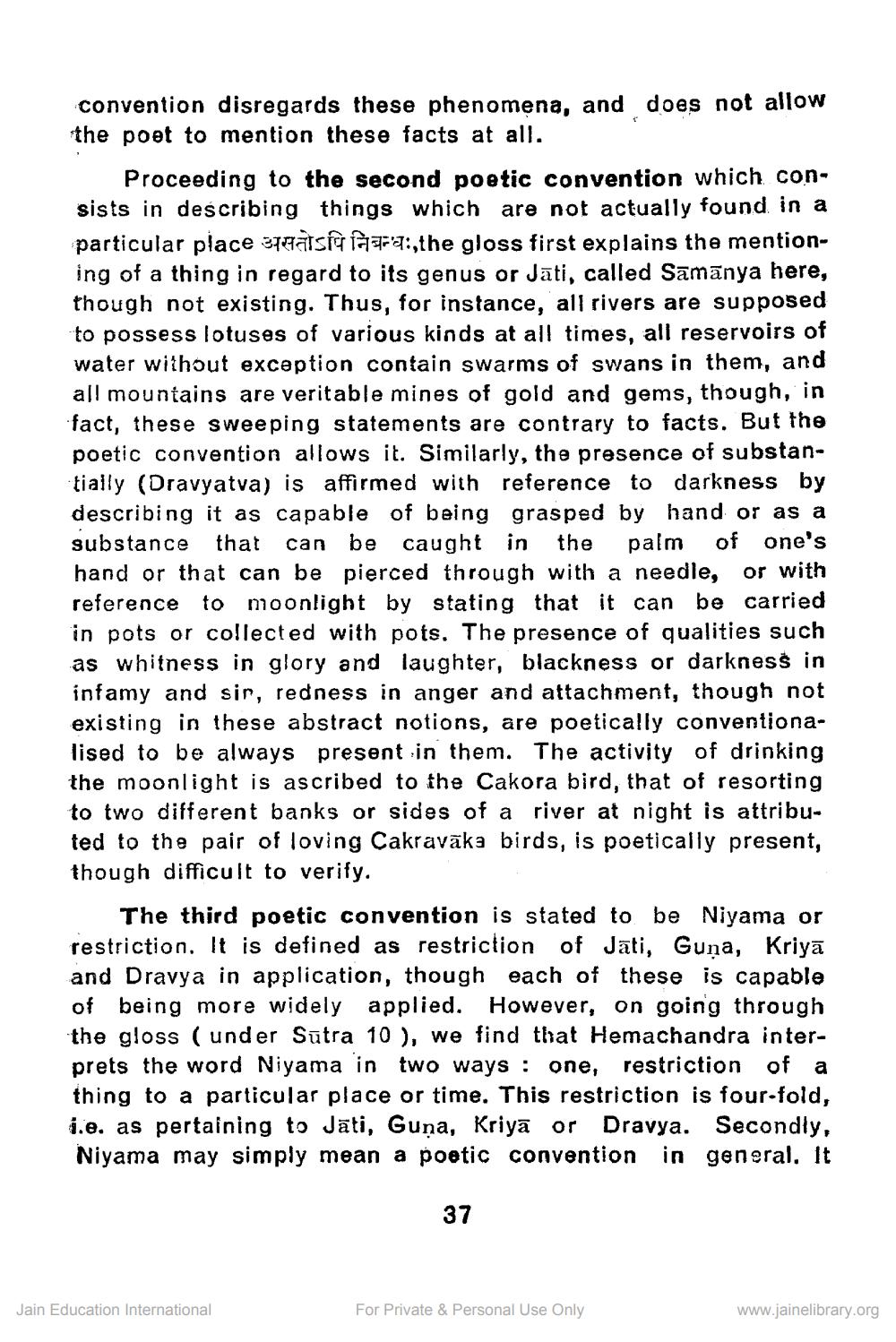________________
convention disregards these phenomena, and does not allow the poet to mention these facts at all.
Proceeding to the second poetic convention which consists in describing things which are not actually found in a particular place as fra:,the gloss first explains the mentioning of a thing in regard to its genus or Jati, called Samanya here, though not existing. Thus, for instance, all rivers are supposed to possess lotuses of various kinds at all times, all reservoirs of water without exception contain swarms of swans in them, and all mountains are veritable mines of gold and gems, though, in fact, these sweeping statements are contrary to facts. But the poetic convention allows it. Similarly, the presence of substantially (Dravyatva) is affirmed with reference to darkness by describing it as capable of being grasped by hand or as a substance that can be caught in the palm of one's hand or that can be pierced through with a needle, or with reference to moonlight by stating that it can be carried in pots or collected with pots. The presence of qualities such as whitness in glory and laughter, blackness or darkness in infamy and sir, redness in anger and attachment, though not existing in these abstract notions, are poetically conventionalised to be always present in them. The activity of drinking the moonlight is ascribed to the Cakora bird, that of resorting to two different banks or sides of a river at night is attributed to the pair of loving Cakravāka birds, is poetically present, though difficult to verify.
The third poetic convention is stated to be Niyama or restriction. It is defined as restriction of Jati, Guna, Kriyā and Dravya in application, though each of these is capable of being more widely applied. However, on going through the gloss (under Sutra 10 ), we find that Hemachandra interprets the word Niyama in two ways: one, restriction of a thing to a particular place or time. This restriction is four-fold, i.e. as pertaining to Jati, Guṇa, Kriya or Dravya. Secondly, Niyama may simply mean a poetic convention in general. It
Jain Education International
37
For Private & Personal Use Only
www.jainelibrary.org




